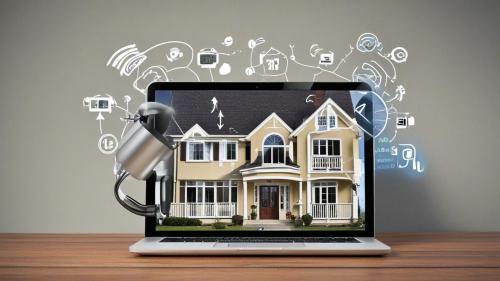In the modern world, where technology is ingrained in every aspect of our daily lives, ensuring our homes are secure has become both simpler and more complex. One of the least thought-about elements of home security, yet one of the most vulnerable, are windows. With the advent of smart home technology, securing windows has moved beyond merely latches and locks and into the realm of innovation and technology.
Smart windows provide a new layer of security, utilizing sensors and detectors to warn homeowners of any unauthorized attempts to gain entry. This level of technological advancement was once the stuff of science fiction but is now available in homes across the globe. These advanced systems can detect the breaking of glass, unlatching of windows, or any suspicious movement around window areas, notifying the homeowner through smartphones or other smart devices.
What is particularly intriguing about smart window security solutions is their integration capabilities. Many smart window systems can seamlessly integrate with home automation systems, allowing homeowners to manage security alongside lighting, heating, and entertainment systems. For example, a security alarm could automatically turn on external lights or close window treatments if a threat is detected.
These systems use real-time data, which can be tracked through dedicated applications, providing homeowners with peace of mind as they can monitor their security status remotely. However, integrating these systems into an existing home setup requires careful planning and consideration of factors like compatibility, network security, and potential entry points.
With security evolving from physical systems to integrated digital frameworks, privacy concerns have risen. Smart window systems, like other IoT devices, are vulnerable if not properly secured. Protecting the home network by enforcing stringent security measures can prevent unauthorized access to these systems. Encrypting your home's internet connection with a robust VPN and using unguessable passwords are essential steps in securing your smart home setup.
Furthermore, examining market options before selecting a system will help you identify which smart window security system aligns best with your needs. Options range from hardwired and battery-operated systems to eco-friendly solar-powered models. Each choice comes with its pros and cons, from installation complexity to ongoing maintenance.
Some of the top contenders include devices that combine multiple functionalities, such as being able to monitor sound, movement, and environmental changes. The versatility these systems offer with their alert customization can allow homeowners to manage how frequently they receive notifications and what they do with them, reducing unnecessary alerts while remaining vigilant.
The introduction of AI in home security is another fascinating aspect shaping the future of window security. AI-powered cameras and sensors can now differentiate between ordinary versus suspicious activity, reducing false alarms significantly while improving overall safety.
In essence, smart window security encapsulates the evolution of home security systems and is a vivid illustration of how far technology has brought us. It emphasizes a new era of proactive, rather than reactive, security measures, companies, focusing on prevention and deterrence through state-of-the-art advancements. Those willing to adapt to these new technologies are sure to reap the benefits of increased peace of mind and a more integrated home security strategy.
As smart window technologies advance, they promise to integrate even further with less energy consumption, more sustainable materials, and higher levels of customization. For those seeking not only to protect but also to future-proof their homes, investing in smart window security is certainly a forward-thinking decision.
Smart Window Security: Protecting Your Home with Technology




